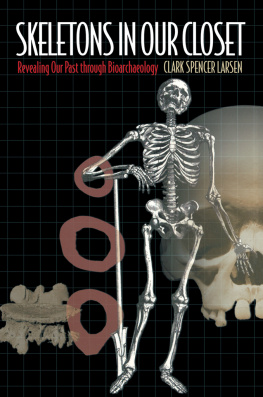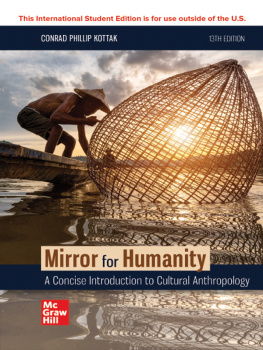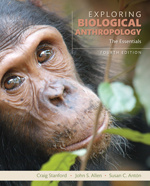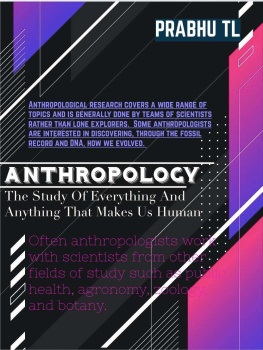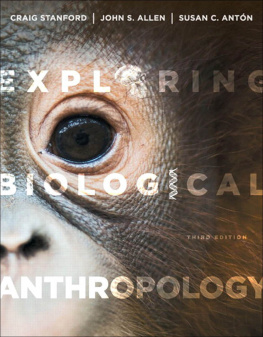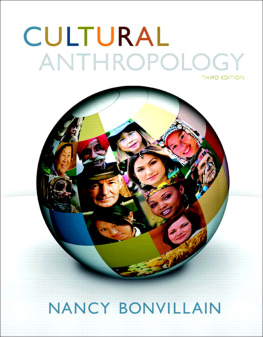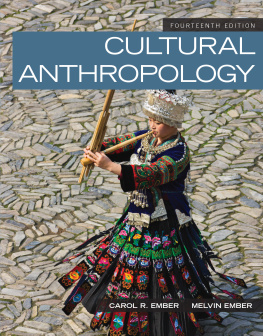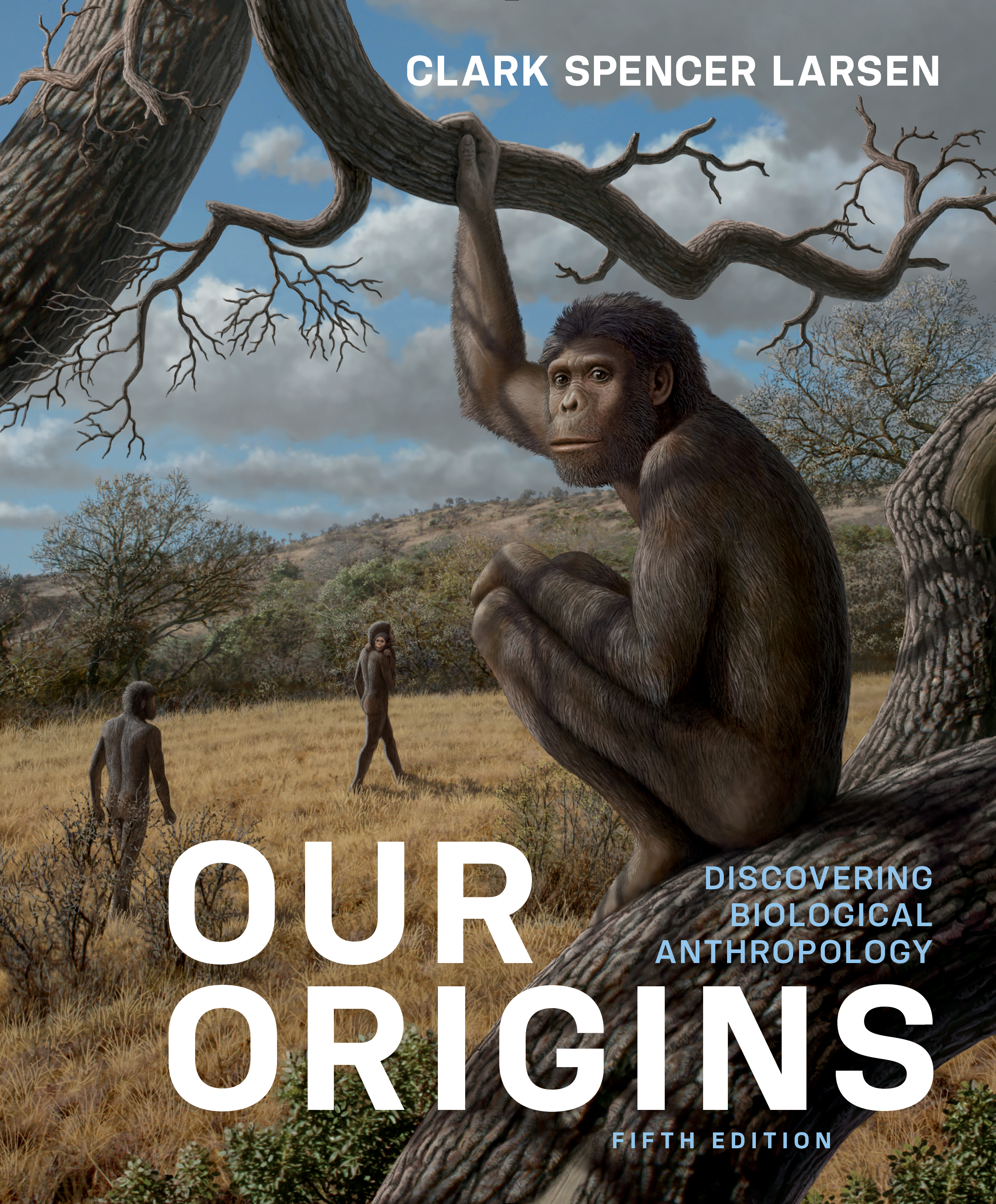TO THE INSTRUCTOR
How This Book Can Help Your Students Discover Biological Anthropology
It Is about Engagement
Teaching is about engagementconnecting the student with knowledge, making it real to the student, and having the student come away from the course with an understanding of core concepts. Our Origins: Discovering Biological Anthropology seeks to engage the student in the learning process. Engaging the student is perhaps more of a challenge in the study of biological anthropology than in the study of other sciences, mainly because the student has likely never heard of the subject. The average student has probably taken a precollege course in chemistry, physics, or biology. Biological anthropology, though, is rarely mentioned or taught in precollege settings. Commonly, the student first finds out about the subject when an academic advisor explains that biological anthropology is a popular course that fulfills the colleges natural science requirement.
Once taking the course, however, that same student usually connects quickly with the subject because so many of the topics are familiarfossils, evolution, race, genetics, DNA, monkeys, forensic investigations, and origins of speech, to name a few. The student simply had not realized that these separately engaging topics come under the umbrella of one discipline, the subject of which is the study of human evolution and human variability.
Perhaps drawn to biological anthropology because it focuses on our past and our present as a species, the student quickly sees the fundamental importance of the discipline. Two of Discover magazines top 10 stories of 2017 were from biological anthropology, one of which was the featured cover story on human evolution. Moreover, biological anthropology, including most of the areas you will learn about, are well represented in the popular press, news magazines, and various media outlets. In this textbook, the discussions of topics familiar and unfamiliar give the student stepping-stones to science and to the centrality of biological anthropology as a window into understanding our world. Whether the students find the material familiar or unfamiliar, they will see that the book relates the discipline to human life: real concerns about human bodies and human identity. They will see themselves from an entirely different point of view and gain new awareness.
In writing this book, I made no assumptions about what the reader knows, except to assume that the readerthe student attending your biological anthropology classhas very little or no background in biological anthropology. As I wrote the book, I constantly reflected on the core concepts of biological anthropology and how to make them understandable. I combined this quest for both accuracy and clarity with my philosophy of teaching; namely, engage the student to help the student learn. Simply, teaching is about engagement. While most students in an introductory biological anthropology class do not intend to become professional biological anthropologists, some of these students become interested enough to take more courses. So this book is written for students who will not continue their study of biological anthropology, those who get hooked by this fascinating subject (a common occurrence!), and those who now or eventually decide to become professionals in the field.
The book is unified by the subject of biological anthropology. But equally important is the central theme of sciencewhat it is, how it is done, and how scientists (in our case, anthropologists) learn about the natural world. I wrote the book so as to create a picture of who humans are as organisms, how we got to where we are over the past millions of years of evolution, and where we are going in the future in light of current conditions. In regard to biological anthropology, the student should finish the book understanding human evolution and how it is studied, how the present helps us understand the past, the diversity of organisms living and past, the diversity of human beings, and the nature of biological change over time and across geography. Such knowledge should help the student answer questions about the world. For example: How did primates emerge as a unique group of mammals? Why do people look different from place to place around the world? Why is it important to gain exposure to sunlight yet unsafe to prolong that exposure? Why is it unhealthy to be excessively overweight? Throughout their history, what have humans eaten, and why is it important to know?
I have presented such topics so that the student can come to understand the central concepts and build from them a fuller understanding of biological anthropology. Throughout the book, I emphasize hypothesis testingthe core of the scientific methodand focus on that process and the excitement of discovery. The narrative style is personalized. To show the student how problems are addressed through fieldwork or through laboratory investigations, I often draw on my own experiences and those of scientists I know or am familiar with through their teaching and writing.
Scientists do not just collect facts. Rather, they collect data and make observations that help them answer questions about the complex natural world we all inhabit. Reflecting this practice, Our Origins: Discovering Biological Anthropology is a collection not of facts for the student to learn but of answers to questions that help all of us understand who we are as living organisms and our place in the world. Science is a way of knowing, it is a learning process, and it connects our lives with our world. In these ways, it is liberating.
How the Book Is Organized
The book is divided into three parts. After an introductory overview of anthropology and biological anthropology, the past record of primate and human evolution. In putting the record of the living up front, this book departs from the style of most other introductory biological anthropology textbooks, which start out with the earliest record and end with the living. This book takes the position that most of what we learn about the past is based on theory and principles learned from the living record. Just as all of Charles Darwins ideas were first derived from seeing living plants and animals, much of our understanding of function and adaptation comes from living organisms as models. Therefore, this book views the living as the window into what came beforethe present contextualizes and informs our understanding of the past. It is no mistake, then, that Our Origins is the title of the book. The origins of who we are today do not just lie in the record of the past but are very much embodied in the living. Our origins are expressed in our physical makeup (bones, teeth, and muscles), in our behavior, and in so many other ways that the student taking this course will learn about from this book and from you. You can teach individual chapters in any order, and that is partly because each chapter reinforces the central point: we understand our past via what we see in the living.
presents this remarkable record, including changes in health and well-being that continue today. A new subdiscipline of biological anthropology, bioarchaeology, is contributing profound insights into the past 10,000 years, one of the most dynamic periods of human evolution. During this period, a fundamental change occurred in how humans obtained food. This change set the stage for our current environmental disruptions and modern living conditions.
explores the record of continued evolution and discusses the impact of new developments, such as global warming, the alarming global increase in obesity, and the rise of health threats such as newly emerging infectious diseases, of which there is little understanding and for which scientists are far from finding cures. This part looks at the implications of these developments for evolution and for humans future on Earth.


